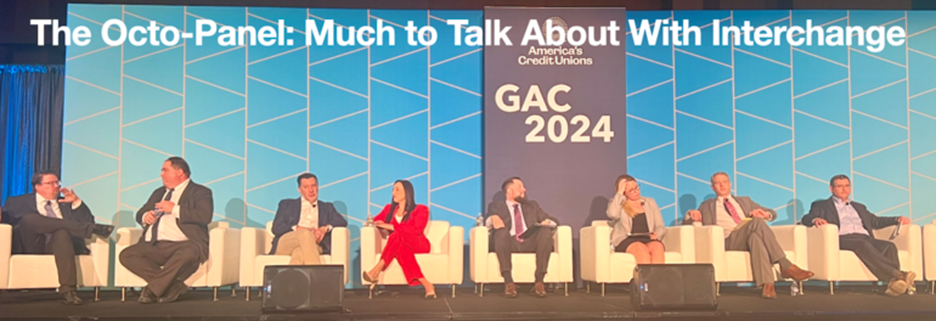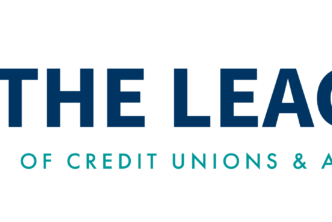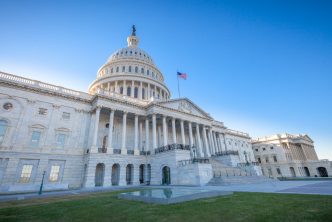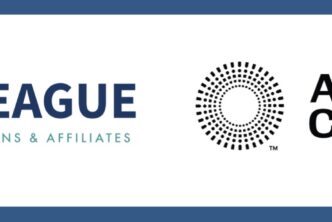During the America’s Credit Unions Governmental Affairs Conference (GAC), a crucial discussion unfolded about recent interchange legislation. This eight-person panel dissected and deliberated over proposals to reduce interchange income when, for most credit unions, interchange doesn’t cover costs.
The panel, moderated by Richard Gose of America’s Credit Unions, comprised a distinguished lineup of industry experts including:
- Jason Stverak and Brad Thaler from America’s Credit Unions
- Paul Russinoff from Visa
- Sydney Seral from the League of Southeastern Credit Unions (LSCU)
- Madison Rose from America’s Credit Unions
- Brock McCleary from Cygnal
- Wayne Grossman and Glen Grossman from Cornerstone Advisors
Sydney Seral, the Vice President of Advocacy for LSCU, shared some of the proactive measures taken by the League in response to looming interchange legislation. Seral emphasized the importance of digital advocacy and highlighted the “Protect My Card” campaign, an initiative aimed at engaging credit union members in the fight to preserve interchange systems. Utilizing op-eds that showcase minority legislators, LSCU has underscored the potential disproportionate impact of proposed legislation on minority communities, effectively striking a chord with a wider audience.
“One of the key messages that really struck a chord was the notion that retailers are essentially asking members to relinquish their hard-earned dollars for a service that retailers themselves seek to obtain for free,” said Seral.
Seral also outlined the League’s efforts to debunk the notion of exempting sales tax from interchange, citing the complexities involved in such calculations. Additionally, she stressed the privacy implications associated with such exemptions, particularly appealing to Republican stakeholders on this front.
However, Seral cautioned against a shift in strategy by proponents of interchange legislation, who now advocate for the formation of biased “study committees” favoring merchants. This pivot underscores the dynamic nature of the interchange debate and the importance of vigilance on the part of credit unions.
The discussion underscored the multifaceted nature of the interchange battleground, rife with misinformation, misunderstandings, and political maneuvering. As threats to interchange rules manifest at both federal and state levels, credit unions are urged not to underestimate the challenges ahead. The panel’s insights serve as a clarion call for continued advocacy, collaboration, and strategic maneuvering to safeguard the vital interests of credit unions and their members in the face of evolving regulatory landscapes.






